Women In Soccer: UNM Head Coach Heather Dyche on Women in Soccer
Women in Soccer: University of New Mexico’s head coach Heather Dyche on what it takes to make as a female coach in the world of soccer. Dyche will be speaking at the Women In Soccer 2017 Symposium on January 10 in LA – the day before the NSCAA Convention kicks off!
Related Article: Women In Soccer 2017 Symposium
Women in Soccer News: University of New Mexico‘s Heather Dyche is a force to be reckoned with on the soccer field. As Head Coach for Women’s Soccer, she is also a coach, instructor and scout with the United States Soccer Federation (USSF).
 Dyche traveled to Brazil this past summer to assist the U.S. Women’s National Team during the 2016 Summer Olympic Games – assisting with scouting and game analysis.
Dyche traveled to Brazil this past summer to assist the U.S. Women’s National Team during the 2016 Summer Olympic Games – assisting with scouting and game analysis.
An assistant coach for the US Youth National Team U14 and U15 Girls, Dyche also serves on the USSF instructional staff, leading USSF B and USSF C-licensed coaching courses.
Albuquerque native, Dyche is on the instructional staff for CONCACAF and is a US Youth Region IV ODP head coach. She coaches the team at Olympic Development Interregional events and identifies top players in the Arizona area to participate in the Olympic Development Program Regional Team.
Dyche is also the co-founder and head coach of LEAD Academy (Leadership and Empowerment through Athletic Development Soccer) – an all-girls soccer leadership training school in Albuquerque.
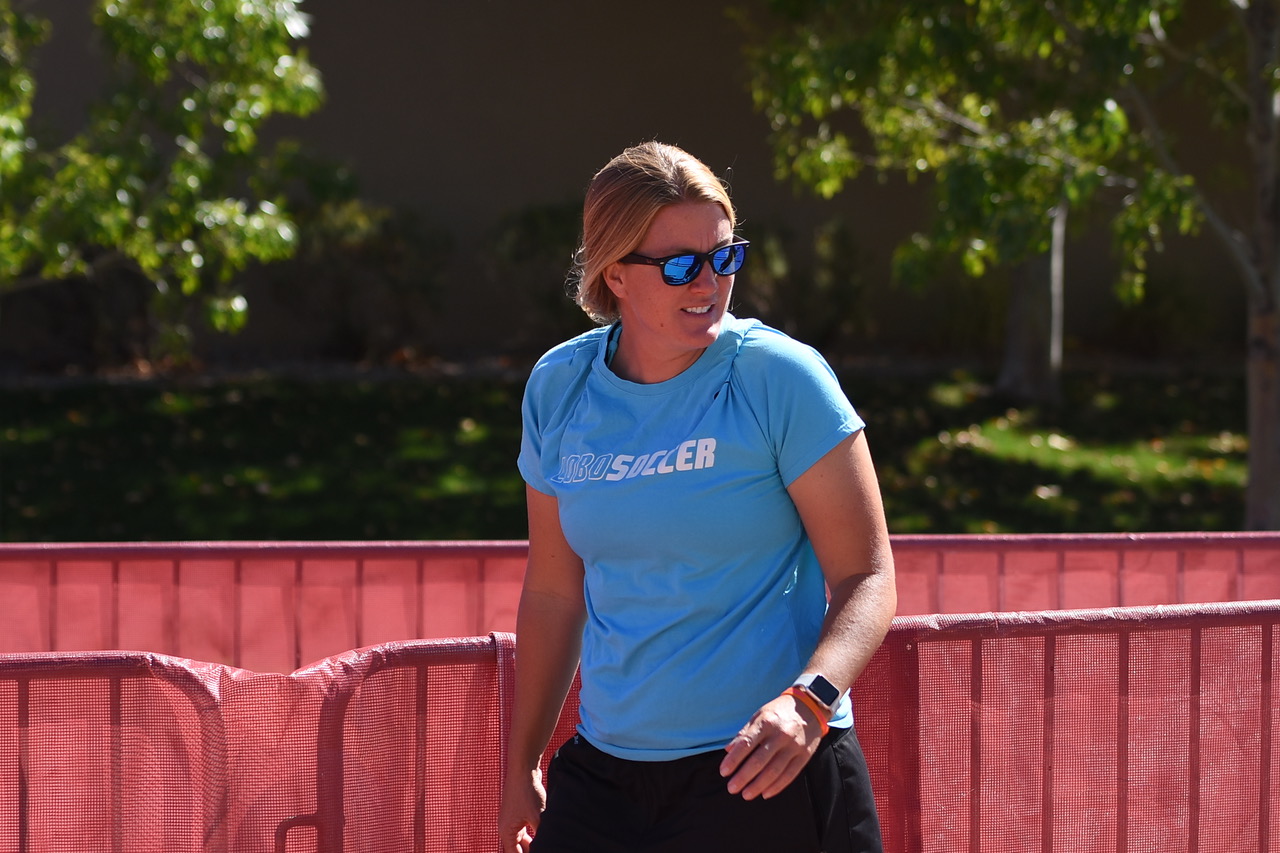
SoccerToday’s Diane Scavuzzo interviewed Heather Dyche on the challenges of women in soccer.
Diane Scavuzzo: When did you first start coaching?
Heather Dyche: I have been fortunate enough to start coaching immediately after I graduated from Florida State University. Soccer has always been my passion and I feel really fortunate to be able to have been surrounded by it for so long.
Diane Scavuzzo: What is the accomplishment that you are most proud of?
Heather Dyche: I have worked really hard in my career at every level to be in a position now where I get to coach and instruct at both a national and international level with UNM, U.S. Soccer, and CONCACAF.
I am proud that I feel every opportunity/position I have — I have earned.
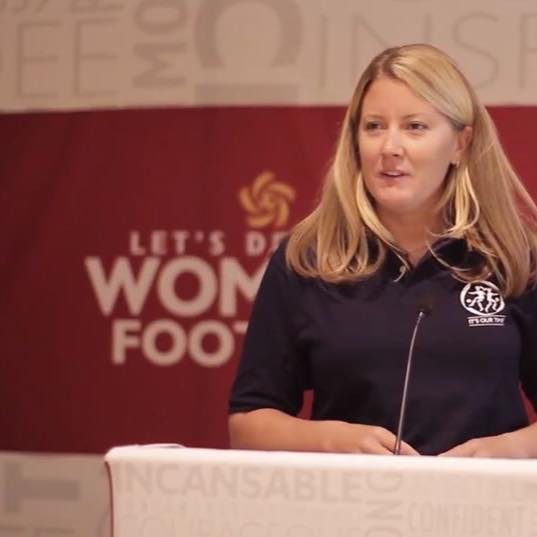
Diane Scavuzzo: What do you think is the most challenging or infuriating thing about working as a women in soccer?
Heather Dyche: It is so interesting to me — to see the huge number of females playing soccer — and to try to figure out why it doesn’t lead to more women coaching.
Our Women’s National team is consistently the best in the world, there are thousands of female college players, and there are more females then males participating in youth soccer.
We have highly experienced, highly educated, and highly qualified women who we have to find a way to keep in the game.
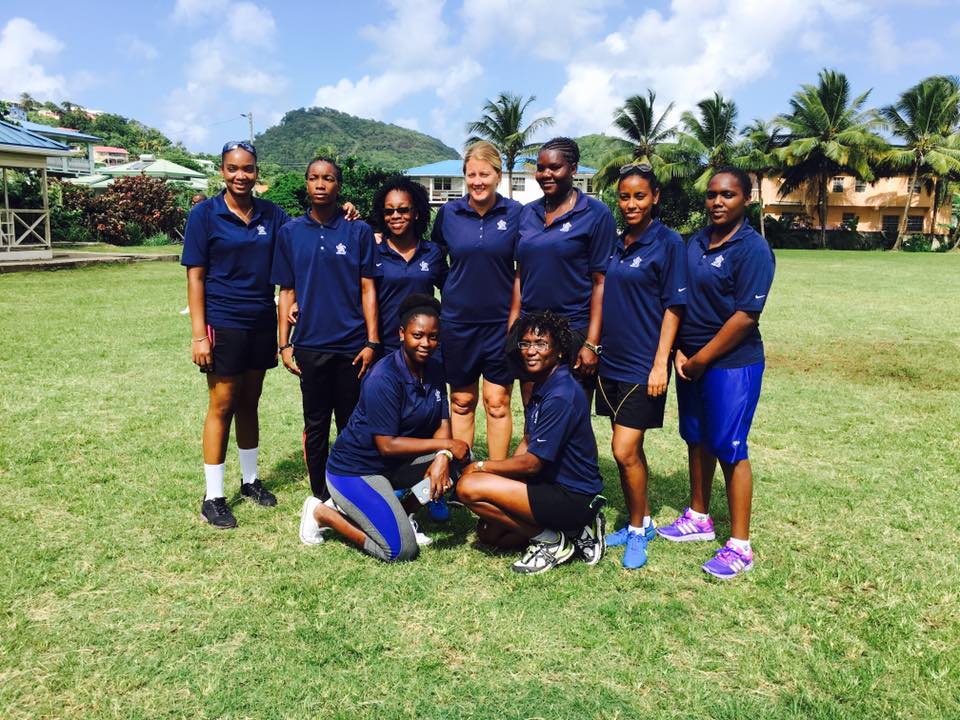
Diane Scavuzzo: Do female coaches face special challenges?
Heather Dyche: In my experience, female coaches have to prove themselves more.
Coaches should be evaluated on how well they can teach, motivate, and lead players, not by gender.
Often, I find female coaches have an extra hurdle — before their ability to teach is ever evaluated.
Diane Scavuzzo: What traits does a female coach need to survive and thrive?
Heather Dyche: There is no question that the ability to relate to players on a personal level can be easier for female coaches, simply because we can speak from experience.
I think being a really great coach has nothing to do with gender.
The qualities I admire most in my mentors or coaches whom I have loved are honesty, competency, compassion, inspiration, intensity, passion — these are all qualities that are gender blind.
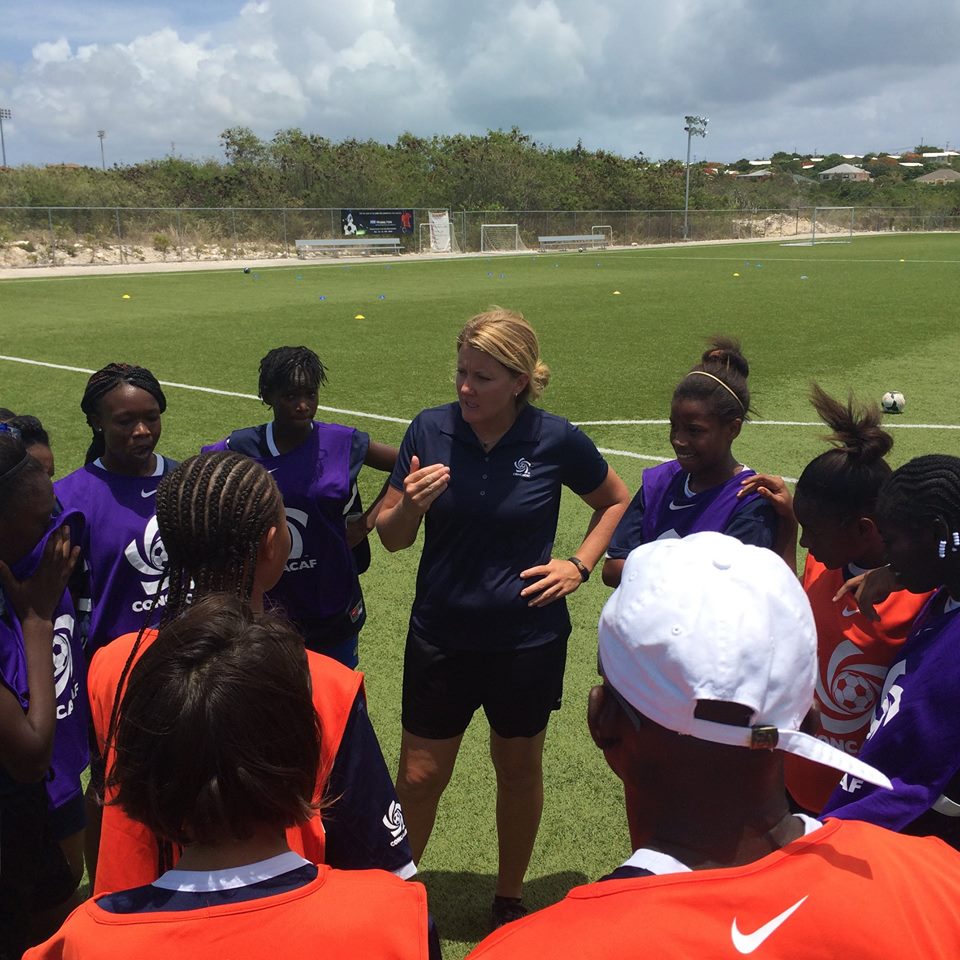
Diane Scavuzzo: How important do you think it is to have the same sex coach if you are a female soccer player?
Heather Dyche: I never played for a female coach for a long period of time, but I certainly had some excellent male role models in my career.
I feel that my role as a coach is to provide my players with a role model that will help them be successful, and become empowered women when they leave our program. We talk a lot about accountability, intrinsic motivation, confidence, and earning your success.
There is no question that strong female role models are needed for our youth players, our college players, and young coaches as well. My sister-in- law, Terryn Dyche, and I created LEAD Academy to try and help fill that void. Leadership and Empowerment through Athletic Development (LEAD) was created to help produce confident empowered young players who think of themselves as soccer players, not female soccer players. We use college players to help coach the sessions, not only are they excellent role models, but we can help them to become better coaches in a safe environment. We have created a confidence-building, fun, curriculum focused on individual player development, and taught in large part by women.
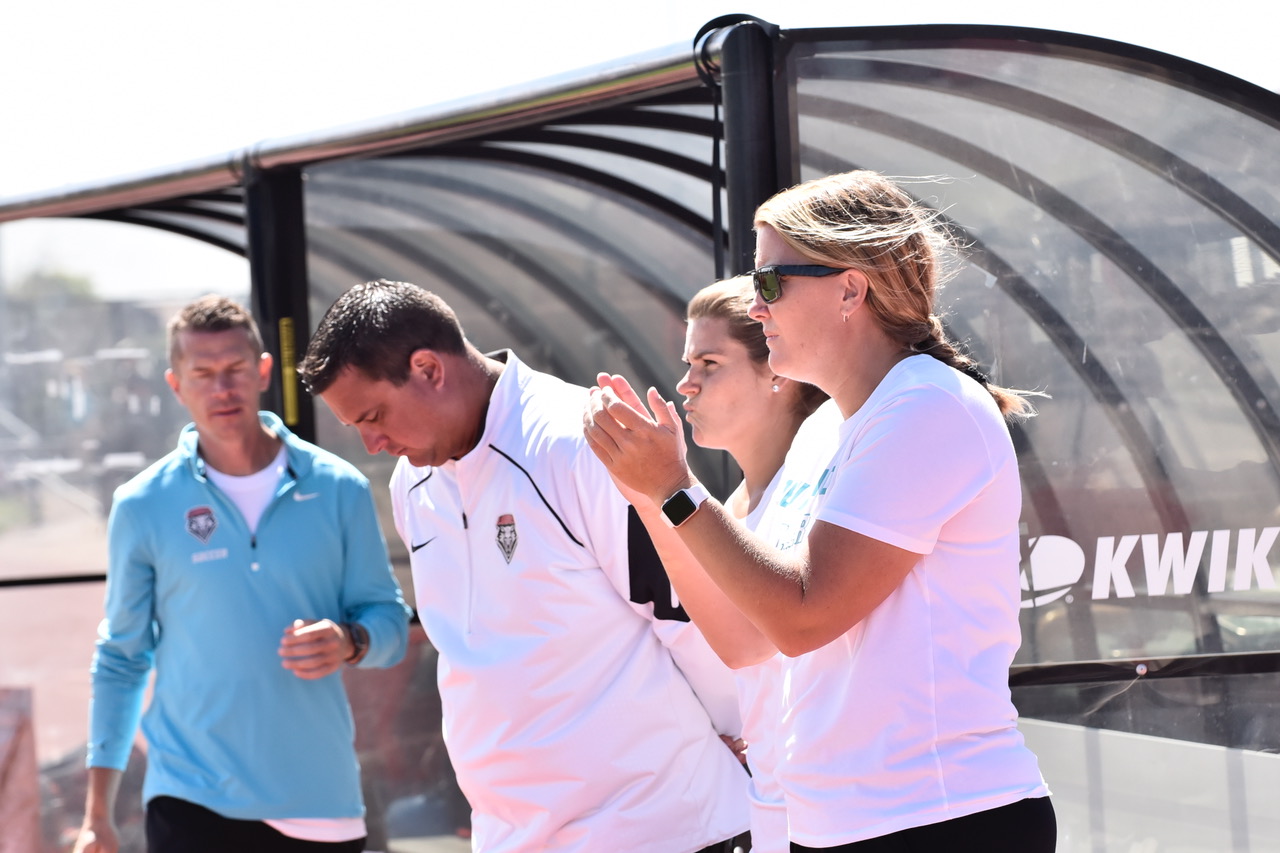
Diane Scavuzzo: What needs to change so that more female coaches can make it?
Heather Dyche: The more we advocate and support each other as female coaches, the better it will be. Putting the time in to mentor young female coaches allows them to be confident and prepared when they get their chance.
Coaching education is a big piece — its important for any coach. You need to have a strong background so that you can teach from experience and knowledge.
Too often. young coaches are just thrown into coaching positions and do not have the experience or support to be successful — so they just stop doing it. Coaching should be fun, we need to remember to enjoy it!
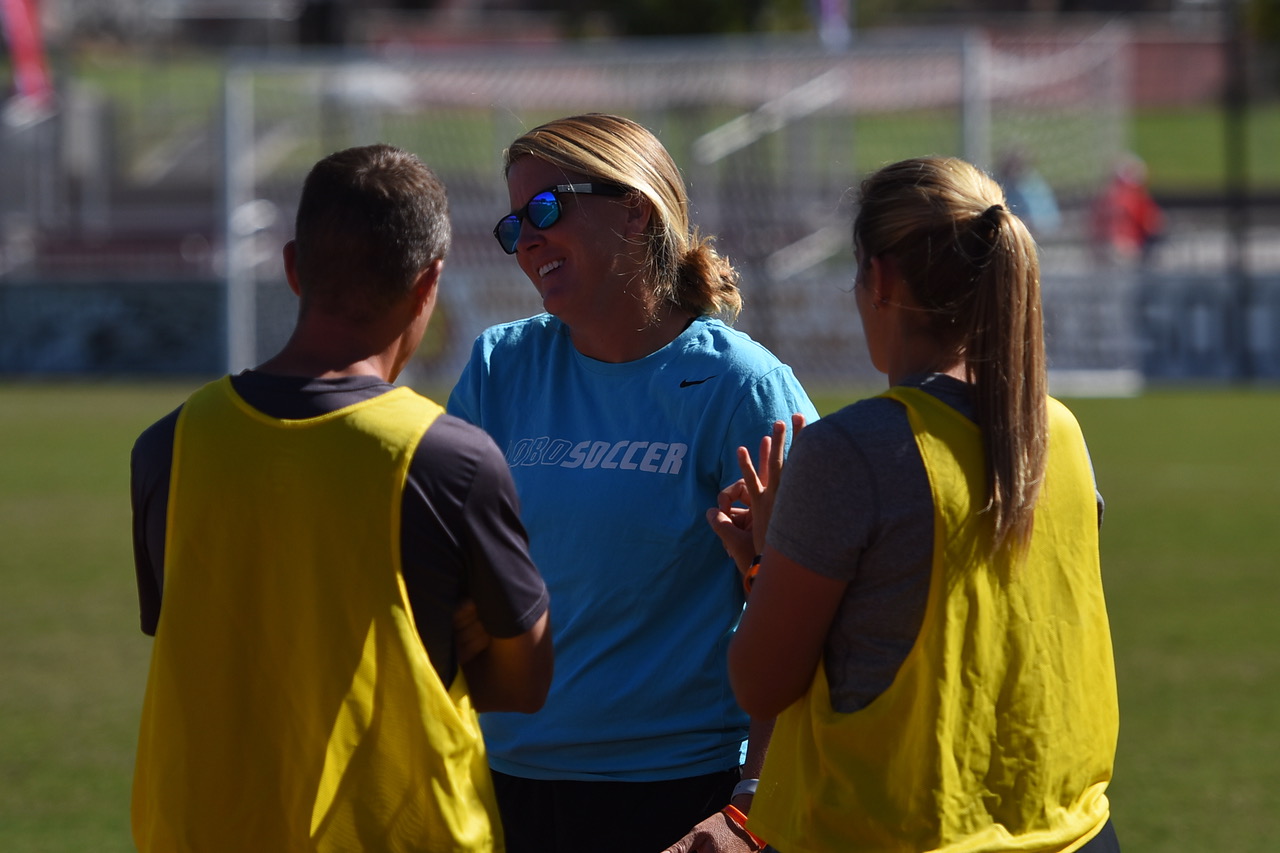
Diane Scavuzzo: What do you think is the most important life lesson that you’ve learned so far?
Heather Dyche: Coaching is profession where we all judge each other.
We all look at how other coaches run sessions or manage their team and we think about how we would do it differently or better, at times it can be very negative.
So when you are a young coach just starting, this criticism really makes your question your ability.
It is important to seek information, find great mentors and make time to learn from them, you don’t have to know everything … ask questions. The environment you are in will lead to your longevity as a coach, finding one that is supportive of growth is key. Once you’ve found a great environment, put your head down and work — the goal is to become a really good coach, not just climb the professional ladder as quickly as you can.
Diane Scavuzzo: What has been your greatest obstacle to success?
Heather Dyche: My greatest obstacle in my career has been being able to not listen to the negativity.
At every level there are parents, other coaches, administrators who find a way to voice their opinion on your coaching ability.
At times it is difficult to maintain your own confidence to keep finding your path.
I have been really fortunate to have some incredible peers and mentors that were equally as positive and pushed me to continue to grow. It is good sometimes to take a step back and remind yourself just what an incredible profession this is, I feel so fortunate to do what I love.
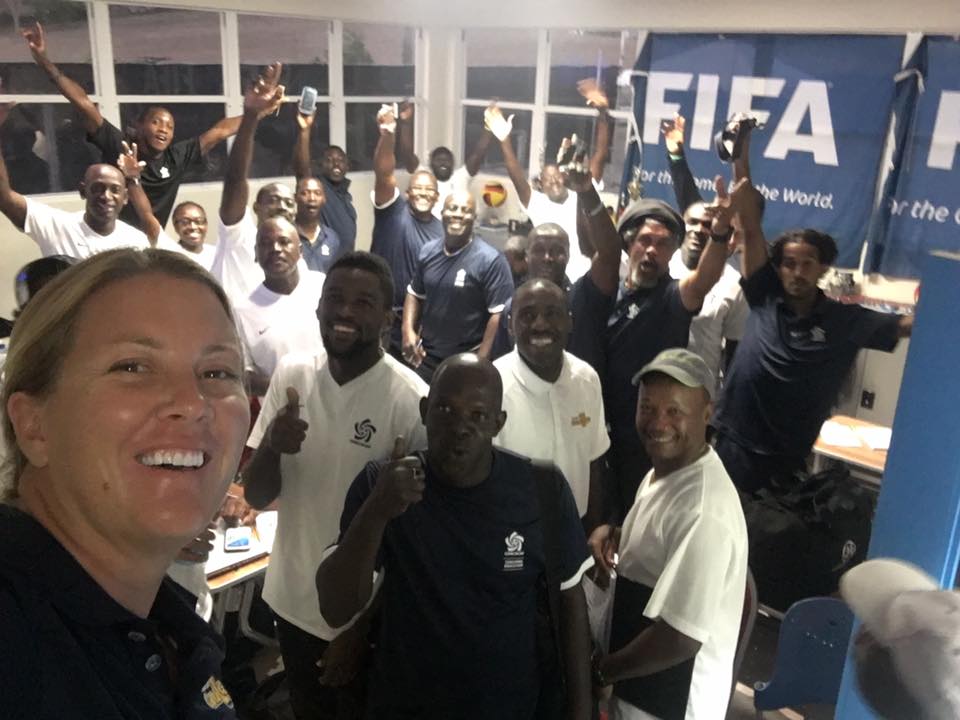
Diane Scavuzzo: Where did you play soccer when you were a youth player?
Heather Dyche: I was born and raised in Albuquerque, NM and I feel incredibly fortunate to be the head coach of University of New Mexico in my hometown. Albuquerque is a small state in terms of population, but has some excellent coaches and players. I played college soccer at Florida State University and then in Norway after. I started my coaching career in youth soccer working for both a club and the New Mexico State Soccer Association.
I have my USSF A License and NSCAA national premier diploma, CONCACAF C license. I instruct coaching education courses for both US Soccer and CONCACAF.
There are far more failures then successes as a coach. You have to stay true to what you believe in. Soccer has be a gift in my life, both professionally and personally. The players I have been lucky enough to coach and learn from, mentors that have challenged me and held be accountable, and the amazing coaches I get to learn from daily… I am grateful.
Editorial Revision: Heather Dyche interview answer updates – Dec. 20th, 4:33 p.m. PT.






